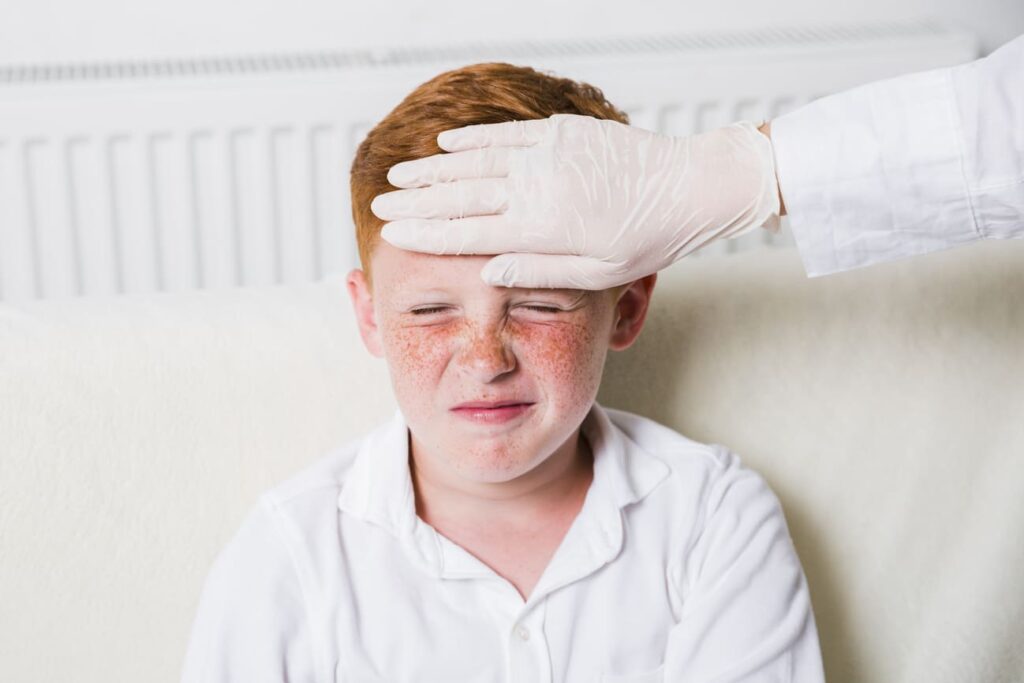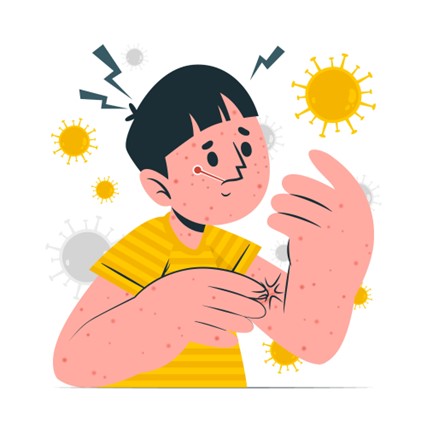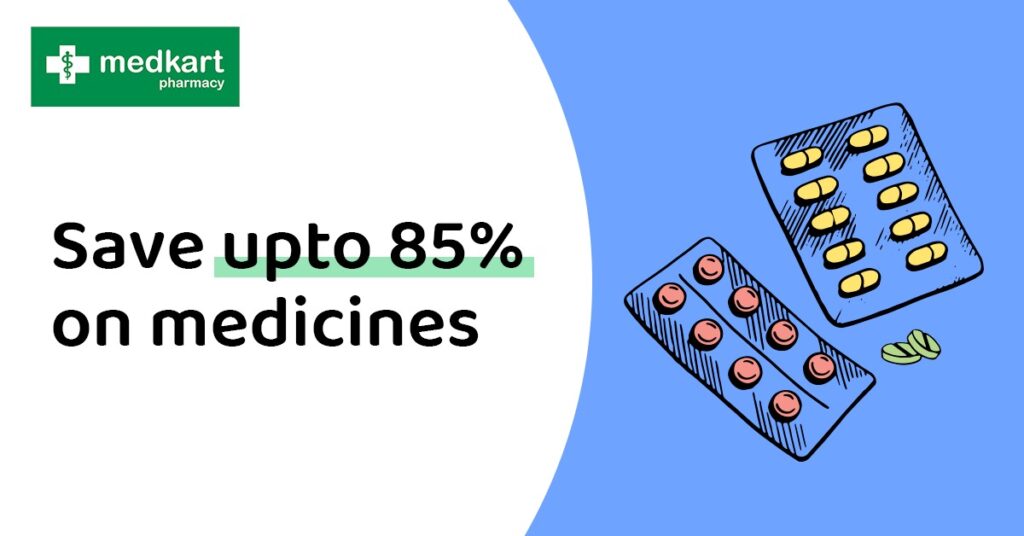Last updated on April 18th, 2025 at 05:41 pm

Chickenpox, scientifically known as varicella, is a highly contagious viral infection caused by the varicella-zoster virus (VZV). It’s characterized by an itchy rash of red spots and blisters that typically covers the entire body. This disease is most common in children, but it can affect people of all ages.
Treating chickenpox in adults requires special attention and care. The primary mode of transmission is through respiratory droplets or direct contact with the fluid from the blisters of an infected person.
Chicken Pox Treatment
Treatment for chickenpox primarily focuses on relieving symptoms and preventing complications. Here’s an overview of chickenpox treatment:
1. Symptom Relief
When it comes to chicken pox treatment, the primary goal is to alleviate the discomfort caused by its symptoms. Here’s what you can do:
- Fever and Pain Management: chicken pox often comes with a fever and general discomfort. Over-the-counter pain relievers such as acetaminophen (Tylenol) or ibuprofen (Advil) can help reduce fever and relieve pain. However, avoid giving aspirin to children with chicken pox, as it may lead to Reye’s syndrome, a rare but serious condition.
- Addressing the Itch: The hallmark symptom of chickenpox is unbearable itchiness. Applying calamine lotion or hydrocortisone cream to the affected areas can help ease the itch.
2. Isolation and Preventing Spread
Chickenpox is highly contagious, so preventing its spread is crucial:
- Isolation: Infected individuals should avoid close contact with others, especially pregnant women, newborns, and individuals with weakened immune systems until all the blisters have scabbed over. This typically takes about 5-7 days.
- Hygiene: Practice good hygiene by frequently washing hands with soap and water. This simple measure can prevent the virus from spreading to others.
3. Antiviral Medications
In some cases, healthcare professionals may recommend antiviral medications, such as acyclovir or valacyclovir. These drugs are particularly useful for:
- High-risk Individuals: Adults, pregnant women, and individuals with weakened immune systems may be prescribed antiviral medications to reduce the severity and duration of the illness.
- Early Treatment: Antiviral medications are most effective when started early in the infection, ideally within 24 hours of the rash’s onset.
- Complications: If complications arise, such as pneumonia or encephalitis, antiviral medications may be necessary as part of the treatment plan.
4. Vaccination
Prevention is always better than cure. Vaccination against chickenpox is the most effective way to protect against the disease. The varicella vaccine is secure and highly effective.
- Routine Vaccination: The varicella vaccine is typically administered in two doses to children. The first dose is given between 12 and 15 months of age, and the second dose is between 4 and 6 years old.
- Adults and Adolescents: If you haven’t had chickenpox or the vaccine, consider getting vaccinated, especially if you are an adult or adolescent. Vaccination not only protects you but also contributes to herd immunity, reducing the overall incidence of chicken pox in the community.
5. Complication Management
While most cases of chickenpox resolve on their own with supportive care, complications can occur, particularly in vulnerable populations. Chickenpox in adults carries a higher risk of complications, including bacterial skin infections, pneumonia, and encephalitis (brain inflammation). Here’s how to address these issues:
- Bacterial Infections: Chicken pox blisters can become infected with bacteria. If this happens, antibiotics may be necessary to treat the infection.
- Pneumonia or Encephalitis: In rare cases, chicken pox can lead to severe complications like pneumonia or encephalitis (brain inflammation). If complications are suspected, immediate medical attention is essential.

Chicken Pox Treatment at Home
While it’s essential to consult with a healthcare professional for proper guidance for chicken pox treatment, there are several effective home remedies and chicken pox treatments at home that can help manage the symptoms and promote a smoother recovery.
1. Oatmeal Baths for Itch Relief
One of the most troublesome symptoms of chicken pox is the unbearable itchiness of the rash. An oatmeal bath can provide significant relief.
How to do it: Grind plain, unflavored oats into a fine powder and add it to a lukewarm bath. Soak in the oatmeal-infused water for 15-20 minutes. The oatmeal will help soothe the itching and reduce skin irritation.
2. Calamine Lotion or Baking Soda Paste
Both calamine lotion and a baking soda paste can be applied topically to alleviate itching and discomfort:
- Calamine Lotion: Apply calamine lotion directly to the affected areas of the skin. It helps dry out the blisters and provides relief from itching.
- Baking Soda Paste: Mix baking soda with a small quantity of water to make a paste. Gently apply the paste to the itchy spots, leave it on for a few minutes, and then rinse it off. Baking soda can help relieve the skin.
3. Stay Hydrated
Fever and sweating can lead to dehydration, so make sure the infected person drinks plenty of fluids:
- Water: Encourage drinking water throughout the day to stay well-hydrated.
- Clear Broths and Herbal Teas: Clear broths and herbal teas, such as chamomile or ginger tea, can be soothing and provide additional hydration.
Also Read: Chicken Pox Treatment in Hindi
4. Soft, Loose Clothing
Wearing soft, loose-fitting clothing can minimize irritation to the rash and reduce itching. Avoid tight or abrasive fabrics that can further aggravate the skin.
5. Keep Nails Short
Trim the nails of the infected person to prevent scratching, which can lead to secondary infections and scarring.
6. Relaxation
Chickenpox can be physically draining, so ensure the patient gets plenty of rest to support their immune system as it fights off the virus.
7. Maintain Isolation
To prevent the spread of chicken pox, it’s crucial to isolate the infected individual from others, especially those who are more vulnerable until all the blisters have crusted over. This usually takes about a week.
8. Over-the-Counter Pain Relievers
Over-the-counter pain relievers like acetaminophen or ibuprofen can help reduce fever and relieve pain. However, it’s essential to consult with a healthcare provider, especially for children, before administering any medication.
9. Antiviral Foods
Incorporate foods rich in antiviral properties into the patient’s diet. Garlic, ginger, and foods high in vitamin C can help boost the immune system. Chickenpox treatment at home can alleviate discomfort and promote healing. However, always consult with a healthcare professional for a proper diagnosis and guidance.
Read: What are Generic Medicines?
Conclusion
Chickenpox, though often considered a mild illness in children, can pose serious risks to adults and those with weakened immune systems. The key to effective chicken pox treatment lies in symptom relief, prevention of complications, and, most importantly, vaccination. By following the recommended guidelines for treatment and prevention, you can ensure a smoother and faster recovery.
Remember, consult with a healthcare specialist for a proper diagnosis and personalized treatment plan. The information provided here is for general knowledge and should not replace professional medical advice. Stay informed, stay healthy!
FAQs on Chickenpox Treatment
Q1. Can I treat chicken pox at home, or should I seek medical attention immediately?
In most cases, chickenpox can be managed at home with supportive care. However, it’s crucial to consult with a healthcare professional, especially if you are an adult, pregnant, or have a weakened immune system, as you may require antiviral medication to reduce the severity of the illness.
Q2. Are there any specific over-the-counter medications for treating chickenpox symptoms like fever and itching?
Over-the-counter pain relievers like acetaminophen or ibuprofen can help reduce fever and relieve pain in chickenpox patients, including children. For itching, consider using calamine lotion or hydrocortisone cream topically on the affected areas.
Q3. Is vaccination still necessary if someone has already had chickenpox?
Even if you’ve had chickenpox, getting vaccinated with the varicella vaccine is still recommended in certain situations. This vaccine provides additional protection against shingles, a painful reactivation of the chickenpox virus that can occur later in life. Consult with your healthcare provider to determine whether vaccination is appropriate for your specific circumstances, especially if you’ve never received the chickenpox vaccine before.
Related Links:

